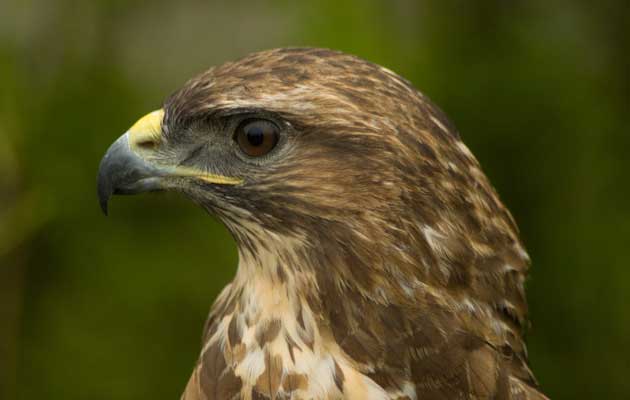Gamekeeper seeks Judicial Review against Natural England over buzzard licence
A self-employed gamekeeper has been given permission by the High Court to proceed with a claim for Judicial Review against the Government’s wildlife licensing authority, Natural England, following its refusal to grant a buzzard control licence.

Ricky McMorn, a self-employed gamekeeper in Northumberland, had applied for a licence to control buzzards attacking young pheasants on the small game shooting enterprise he runs for local farmers in the county. Natural England has acknowledged that the birds of prey were causing serious damage, but refused to issue a licence under the licensing process approved by Parliament.
The Honourable Mrs Justice Thirlwall DBE gave permission to proceed with the claim for Judicial Review on the basis that it was arguable that Natural England had been inconsistent and unreasonable in refusing the licence. The case will now proceed to a full hearing which is likely to take place in the first half of next year.
Mr McMorn believes he may go out of business and lose his livelihood if a licence is not forthcoming. He commented: “I am having to battle the might of the State in the form of Natural England to protect my birds and my job. They admit I’ve got a problem and agree that I have done everything I can, but still they won’t give me a licence. It’s unfair and it’s wrong. Hundreds of other people get licences to kill protected birds every year.”
Mr McMorn’s case is being supported by the National Gamekeepers’ Organisation (NGO). Their spokesman said: “This case is about a gamekeeper who is trying to do the right thing within the law to address a real and serious threat to his livelihood. Natural England has a duty to administer licensing fairly, yet the facts speak for themselves. Extensive discussions with them about solving our member’s problem and saving his job have got nowhere. It is time to let the High Court decide whether Natural England has been acting in accordance with the law.
“Fair and proper implementation of the longstanding licensing system is essential, not only to the wellbeing of the countryside and those who work there but also ultimately to its wildlife. If expanding predatory species become problematic, but people are denied access to the existing legitimate solution, the risk of mavericks undertaking indiscriminate, illegal activity will never go away. We utterly condemn illegal persecution of birds of prey and it must stop.”
The Wildlife and Countryside Act 1981 protects all wild birds but also allows for control licences to be granted for certain purposes. One of these is the prevention of serious damage to livestock including, specifically, gamebirds kept for the provision of shooting. Before any such licence can be granted by NE strict tests must be met, including demonstrating that the damage being caused is indeed serious and that there is no other satisfactory solution. Where these tests are met, however, a licence cannot be unreasonably withheld.
Whilst refusing this licence, in earlier considerations of the case NE has accepted that the damage being experienced is serious; that buzzards are the main cause of the pheasant deaths; that Mr McMorn has done all that can reasonably be expected of him in scaring off the buzzards and otherwise protecting his pheasants; and that removing a small number of buzzards from the site would not compromise the species’ conservation status.
There are now more than 300,000 buzzards in the UK and numbers are booming. The population has undergone a four-fold increase during the last 40 years according to The State of UK Birds 2014, published on behalf of Natural England by the RSPB.
To prevent damage to fisheries, Natural England regularly issues licences under the same system to kill many thousands of cormorants each year — up to 20 per cent of the UK population. Cormorant numbers peak at around 41,000 birds in the UK, compared to 300,000 buzzards.
Natural England also allows buzzards to be killed at UK airports and has, in the recent past, allowed a free-range poultry farmer to trap and remove buzzards causing serious damage to his chickens. This is in contrast to applications made by gamekeepers, where no licence to kill or remove buzzards has ever been granted.








